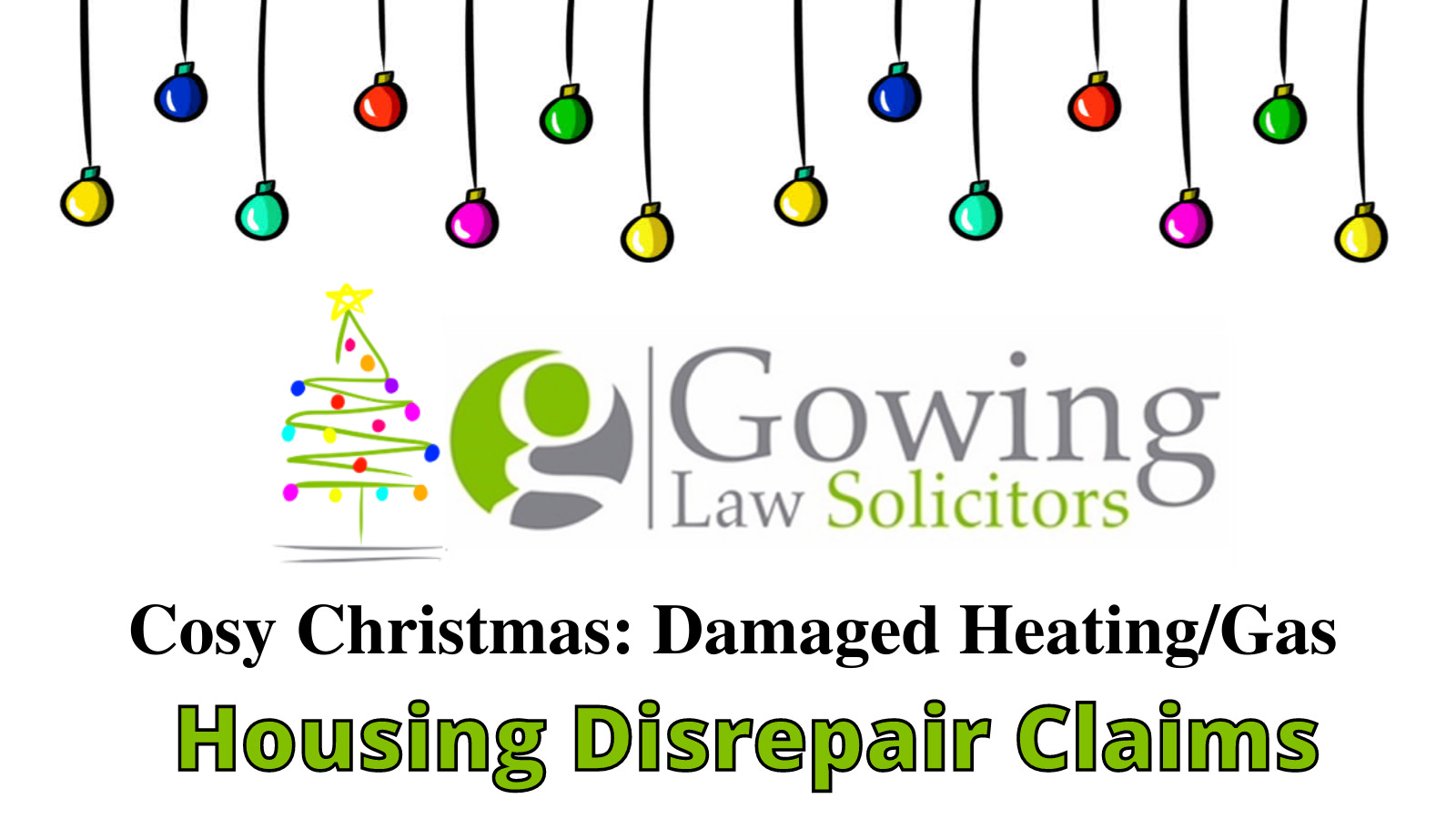

It’s almost Christmas! Here at Gowing Law Solicitors, we are celebrating the holiday season and are getting ourselves ready to enjoy the most festive time of the year. As the season becomes colder, you may find that your council house starts to suffer from a number of disrepairs. This includes damages due to a broken heating system. You don’t deserve to live in accommodation that does not have an adequate heating system in it. The cold could end up making your house extremely uncomfortable to live in. Not only that, but any younger or older members of your family could be at risk of getting ill. This is where you will need Gowing Law Solicitors to step in to help you get the compensation and repairs that you deserve. It’s time for you to start looking into Housing Disrepair Claims
Our law firm can help you when you make your housing disrepair claim. All you need to do is call 0800 041 8350 or use our website below to get started:
What do I need to know about Housing Disrepair Claims?
Let’s start off this blog with a little information about Housing Disrepair Claims in general. When you move into a council house or property from the housing association, your landlord is responsible for the upkeep of your house. This includes the exterior, interior, balcony, garden and garage. They are also responsible for any essential equipment or furniture that they have allowed you to use in your home. If any of it breaks down, they need to be the authority that fixes it. If they fail to do so, that could be a sign of negligence. Some examples of negligence can include:
- Ignoring your requests for help
- Becoming angry that you need help
- Your landlord making the disrepairs much worse
- You being asked to pay for the repair work
With that said, here is a little guidance on what you should do if you do end up suffering from a housing disrepair claim. You should give your landlord a month’s notice and let them know about the disrepairs through writing and electronic correspondence. Here is what you need to do:

Your landlord owes you a “duty of care”, therefore, they are responsible for your safety whilst you live in the house. If they fail to do this, and you end up getting hurt or the disrepair gets worse, you could be owed compensation as well as the repairs. In some cases, you could be owed up to £20,000 in compensation. This all depends on your damages, the damages of your house and how long your landlord has left your disrepairs for.

Damaged Heating: How could this pose a problem for me?
Your heating is practically the heart of your home. Now that we are experiencing terrible weather due to the upcoming storms, the cold could enter your house and leave you facing extreme heating bills. If you have vulnerable adults or young children in your home, you may find that they could get ill due to the cold and lack of heat inside your house.
There are a range of heating appliances that may break down and cause problems within your house. This includes radiators, heated piping, heated flooring or even your boiler. You may find that it is difficult to charge up heated products or that you cannot produce hot water.
Eventually, you may find that your house becomes too uncomfortable to live in without using your own transportable radiators or heaters. This has caused you general inconvenience and you may find that it is practically impossible to stay in your home. Due to the cold, it may be impossible to take baths or showers, and you may be forced to go out to a friend’s house or a nearby gym to get cleaned up. You should be able to do this in your own home. If your house fails to live up to a habitable standard, you could be owed compensation due to the negligence of your landlord. You didn’t deserve to get hurt and it is necessary that the damaged heating system is fixed as quickly as possible.

What should I do if my house has a damaged heating system?
If your heating system is electric then you should unplug it and turn the power off. That way there is less risk of a further disrepair occurring. If it is a boiler system, it is likely that there may also be a leak if there is a problem with the system entirely. Try to switch everything off. It may be cold but at least there will not be as many disrepairs that you will have to sort out. You may also have to put towels around your boiler if it is leaking.
The important thing to do in this situation is to retain as much heat as you can in at least one room of your house. Cover cold surfaces, such as seats and toilet seats, and try to keep your family all in one room. That way your body heat will warm up the area. You should also put on as many layers as possible. Makes sure to move any portable heating systems into the one room and provide blankets and hot water bottles.
If you are finding your house uninhabitable, it’s important that you go to a friend or a family member’s house. They may be able to let you wash yourself up and get warm. You can even find these type of facilities at gyms. So, pack fresh clothes and get yourselves warmed up. That way you can wait for the repairs to be made before you return to your accommodation.
Try your best to keep warm during this difficult time. If your landlord refuses to help with a broken heating system, the lawyers at Gowing Law will do their best to assist you.
What should I do if I have a faulty heating system?
We understand that it can be extremely stressful if your landlord is refusing to help with your housing disrepair. That’s why it’s time for you to make a Housing Disrepair Claim. You deserve to feel good about your home and feel comfortable in it during the Christmas season. If they refuse to help, you need to get started on your case with the help of a solicitor. Your solicitor can help you collect your evidence and speak to your landlord on your behalf. They can also set up the visit from a triage assessor.
If you are planning on making a housing disrepair, you can expect the following to happen:

Your solicitor will do their best to help you claim your compensation. At the same time, your triage assessor will be looking into the disrepairs. That way you can get both of them sorted out. You will always be kept updated about what is happening and how your claim is progressing.
Get help for your Housing Disrepair Claims
Gowing Law Solicitors are ready to ensure that you have an extremely comfortable Christmas this year. You don’t deserve to live in a house that is cold and could potentially get you ill during the holiday season. That’s why you should get in contact with our law firm to get started on your housing disrepair claim. We can offer you free advice and consultations about your case. If you are happy to move forward, we can work with you on a “no win-no fee” basis. Therefore, you will never have to pay any hidden fees in your case. You will only have to pay your solicitor if they win your case for you. That means you will always come out on top!
Find out more about how Gowing Law can help with Housing Disrepair Claims by calling us on 0800 041 8350, emailing info@gowinglaw.co.uk or by using our claims checker on our website. One of our specialists will then be in touch to answer any additional questions that you may have.
Want to know more about Housing Disrepair Claims?
Here at Gowing Law Solicitors, we are determined to get you the help that you need to ensure you get a high compensation pay-out. To do this, you need to understand what type of case you are getting involved in. That’s why you can find out more about different types of law blogs by visiting our blog page. We update it every week with brand new content about legal claims, seasonal events and the occasional competition and giveaway. You can even suggest topics to our content team by writing in to info@gowinglaw.co.uk. Make sure to also sign up to our newsletter below:
Don’t forget that Gowing Law has a number of social media pages that you can sign up to in order to see our latest video content and updates. We have a LinkedIn, Facebook and Twitter below. Just click the buttons to visit our social pages.
Happy Christmas!











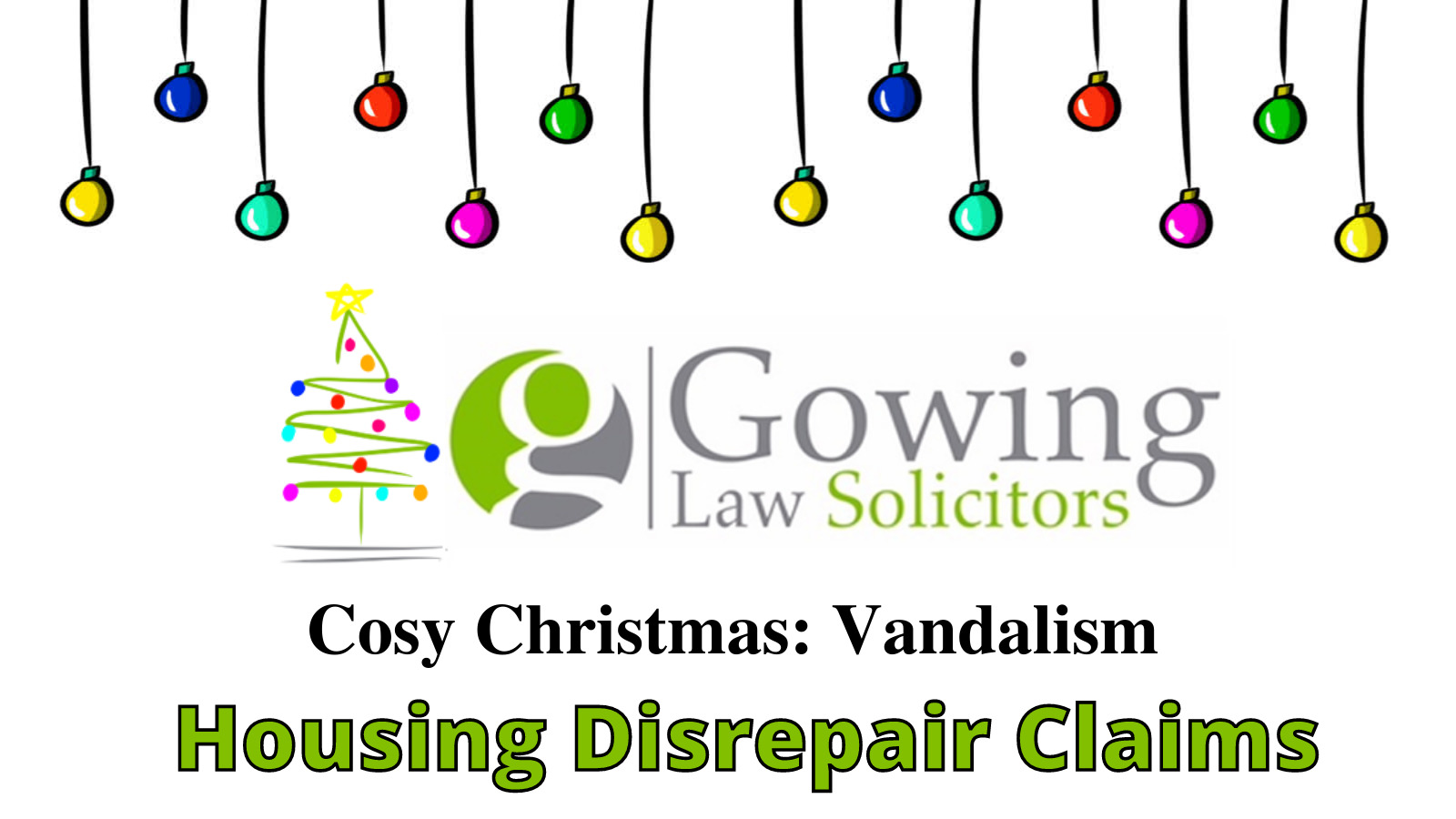





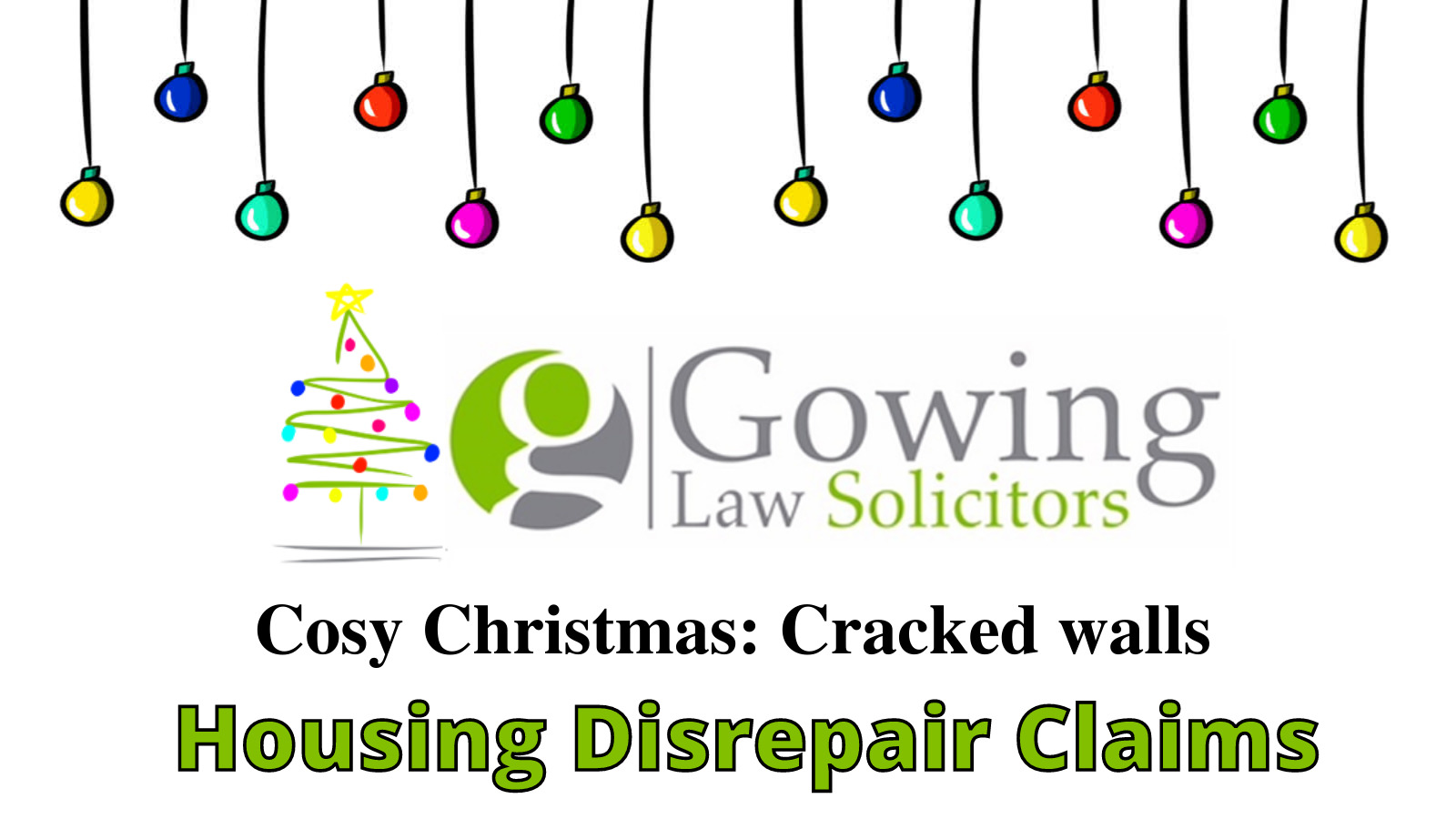



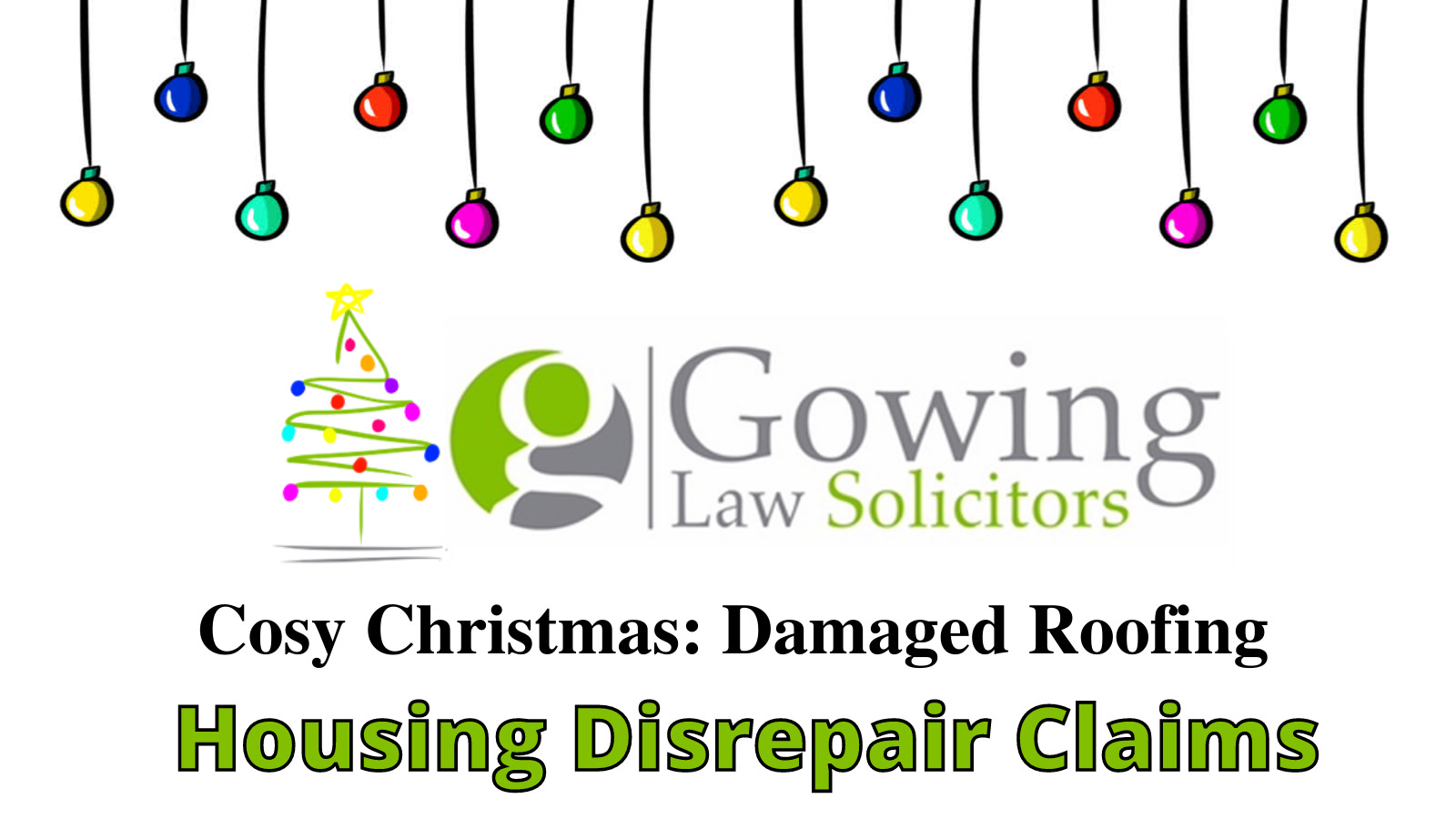



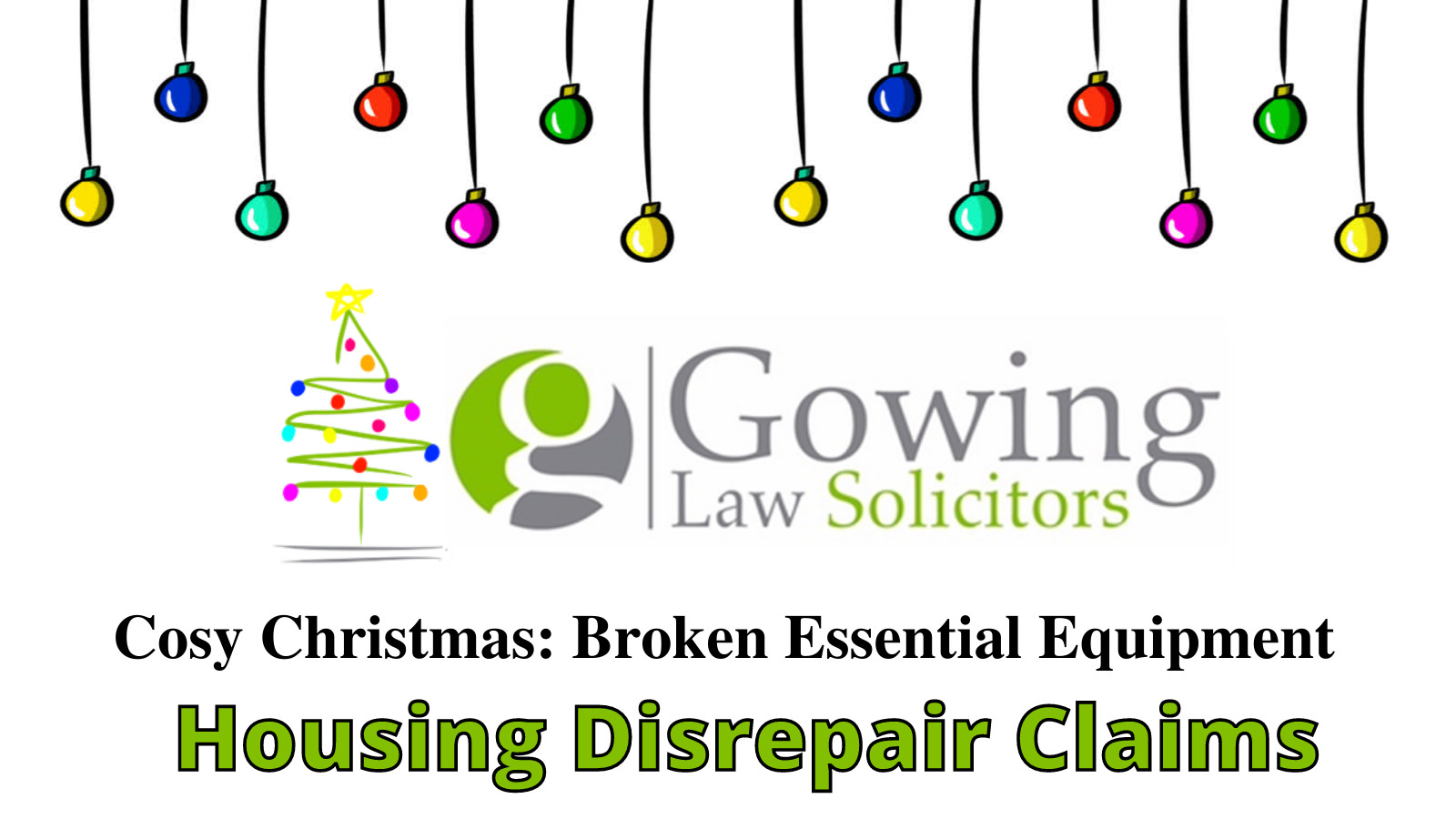












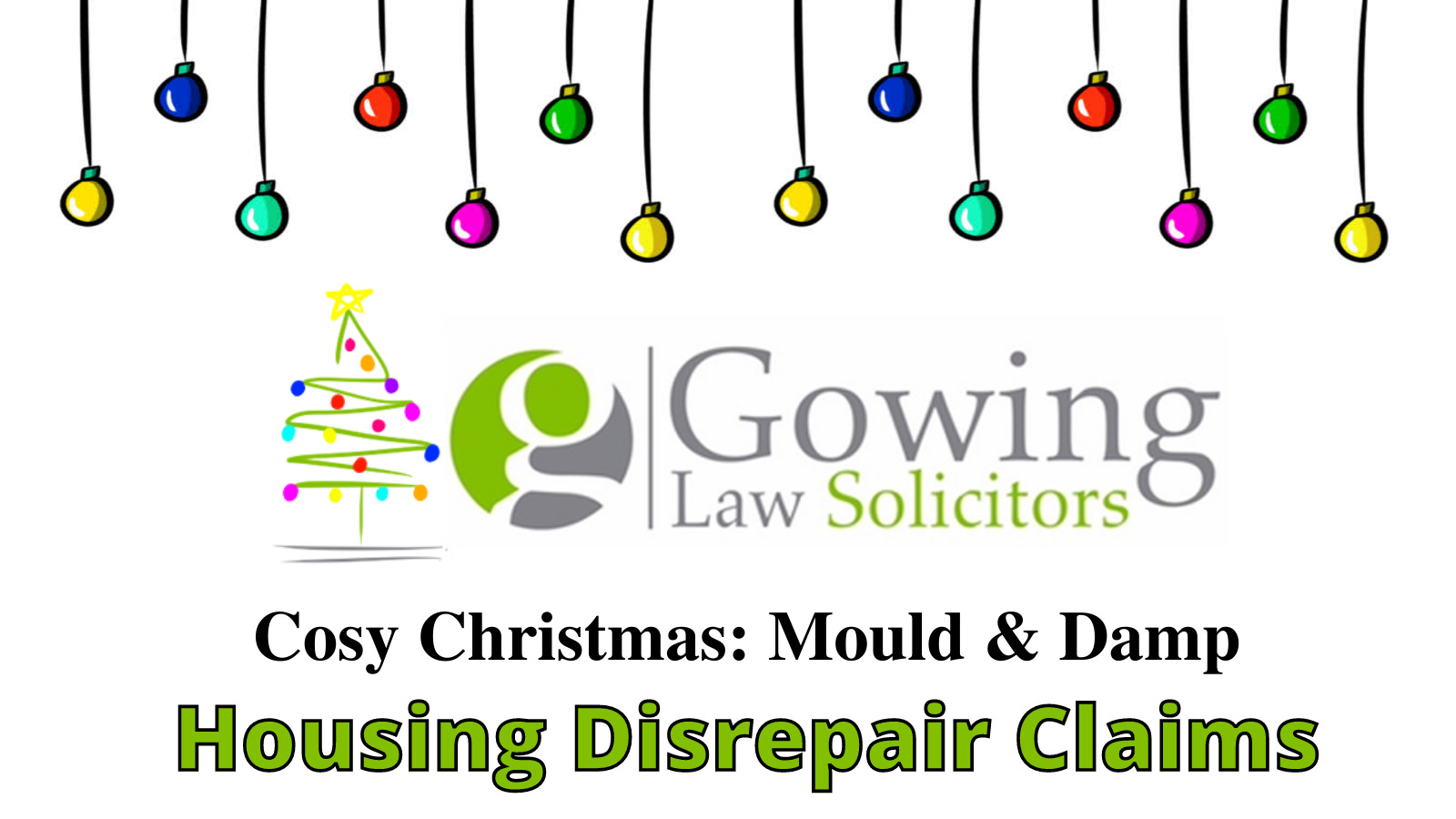

















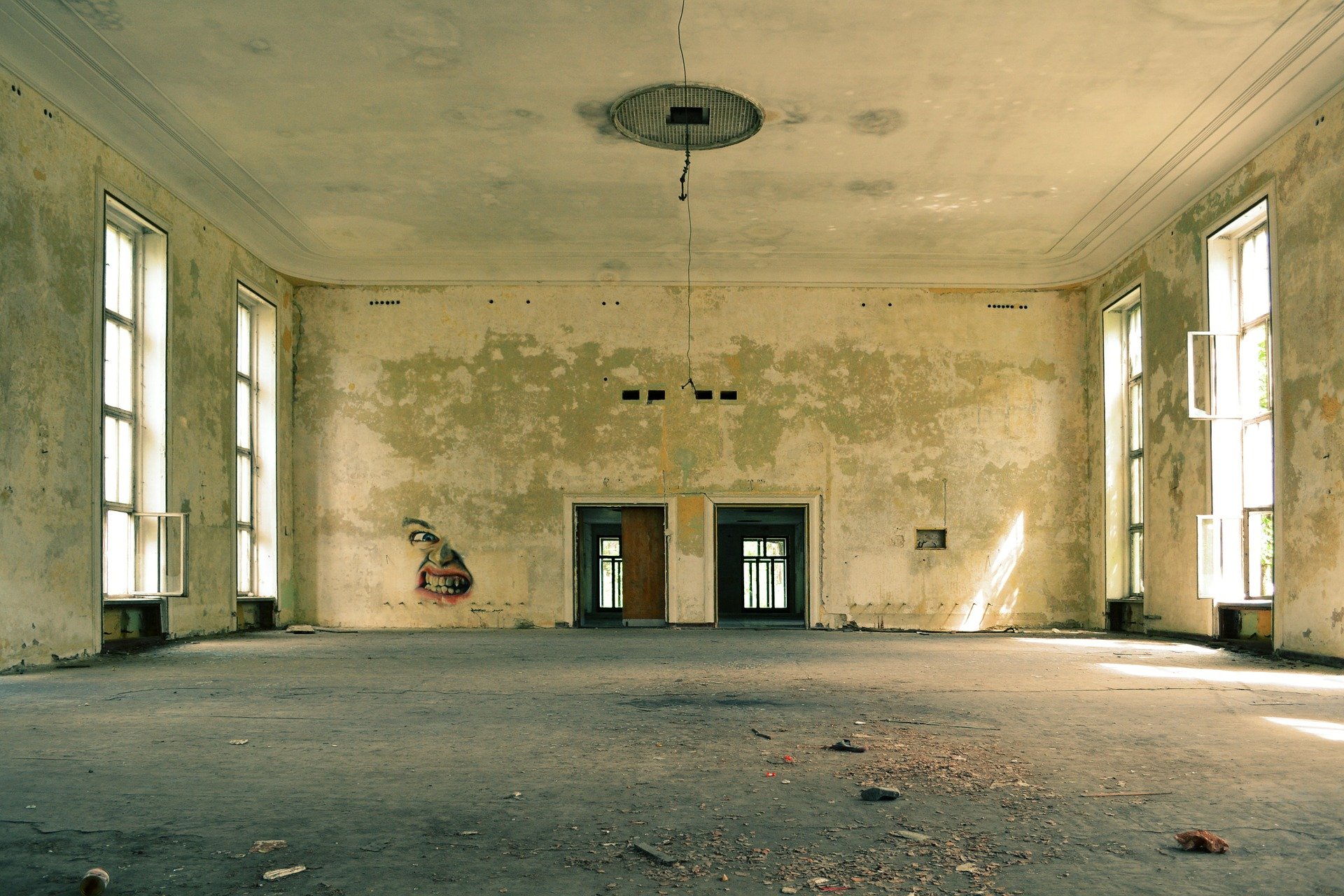










Recent Comments